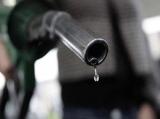New Delhi, Jun 28: Petrol price was today hiked by a steep Rs 1.82 a litre, the third increase in rates this month, as falling rupee made imports costlier. An increase in diesel rates is expected early next week.

Petrol price in Delhi was hiked by Rs 2.19 per litre to Rs 68.58 from tomorrow as against Rs 66.39 currently.
Diesel price too is likely to be raised by 40-50 paisa per litre early next week in accordance with the government mandate for small doses of increases every month.
In Mumbai, petrol price has been increased by Rs 2.30 to Rs 76.90 while in Kolkata rates went up from Rs 73.79 to Rs 76.10 per litre. In Chennai, prices were hiked by Rs 2.32 to Rs 71.72.
This week's increases have almost negated the four reductions this year that had brought down the rates to Rs 63.01 at the beginning of May.
"Since last price change, the downwards slide of rupee has continued and USD-INR exchange rate has deteriorated from Rs 57.08 to a US dollar to Rs 58.94 during the fortnight," Indian Oil Corp (IOC) said announcing the increase in rates.
Further, international gasoline (petrol) prices have also increased from USD 113.84 per barrel to USD 115.29 a barrel since last price change.
The combined impact of both depreciating rupee and rising international prices have warranted the increase in petrol prices by Rs 1.82 per litre, excluding VAT, IOC said.
Depreciating rupee has led to widening of losses on diesel and cooking fuel. Oil firms are now losing Rs 8.60 per litre on diesel as compared to Rs 6.31 previously.
Diesel prices have been hiked on five occasions since January when the government authorised state-owned oil firms to increase prices by up to 50 paisa per litre every month till entire losses on the fuel are wiped out.
Since diesel price was hiked by 50 paisa, excluding VAT, on June 1, the next increase will happen at the month end.
Oil firms are losing Rs 30.53 per litre on kerosene sold through public distribution system (PDS) and Rs 368.50 per 14.2-kg domestic LPG cylinder.
"Estimated under-recovery of IOC on sale of these three sensitive products is expected to be around Rs 63,000 crore for the fiscal 2013-14 (industry estimates at around Rs 118,000 crore)," the statement said.
IOC said the movement in international oil markets and INR-USD exchange rate is being closely monitored and developing trends of the market will be reflected in future price changes.






Comments
Add new comment